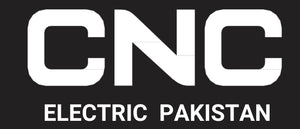Lithium Ion Battery Future Prospects
Lithium Ion Battery Future Prospects
The Lithium Ion Battery is transforming our world's power supply. It recharges fast, is small, light, and tough. From electric cars to phones, you'll find it everywhere. Most importantly, it is assisting us in becoming less dependent on fossil fuels. Its advantages are almost impossible to ignore: Long lifetime with little degradation. Rechargeable with fast charging capability. Low maintenance and lightweight. Ecofriendly substitutes for conventional energy sources. With industries switching toward clean energy, Lithium Battery systems are becoming the core of modern innovation. From powering homes to supporting smart cities, their future potential is huge. Let's examine what distinguishes them and how they are influencing the future.
A Cornerstone of the Energy Transition
The Lithium Battery is central to global energy reform. It offers cleaner, safer, and more efficient energy storage. Governments and industries are adopting it at record pace.
Making Renewable Energy Reliable
Wind and solar energy are not always accessible. This produces a supply shortage on gloomy or windless days. Extra energy for when it is needed is kept by lithium ion batteries. Power becomes dependable thanks to the battery serving as a backup. This renders renewable energy realistic even on a big scale.
Adoption Across Diverse Sectors
The battery’s versatility fuels its massive adoption:
-
Electric vehicles (EVs)
-
Residential and commercial solar systems
-
Portable electronics
-
Off-grid energy setups
-
Backup systems for hospitals and data centers
Its broad use shows just how crucial it’s becoming worldwide.
Lithium Battery Fueling Everyday Devices
Your phone, laptop, and smartwatch use lithium-ion cells. They provide longer usage and quicker recharge cycles. This reliability makes them ideal for daily life demands.
Breakthroughs in Lithium Battery Technology
Innovation is enhancing the performance of Lithium Ion Batteries. Scientists are going beyond limits in efficiency and security. Every discovery brings us closer to more intelligent energy use.
Improving Energy Density and Speed
Superior materials produce smaller but more powerful batteries. Higher energy density lets more power in less room. New designs cut charging time without damaging the cells. This qualifies them for use in mobile devices and electric vehicles. Soon, a 15-minute full charge might be the norm.
Sustainability and Long-Term Use
The less garbage we create the longer a battery's life is. Modern lithium ion batteries could last over a thousand cycles. Less replacements and a smaller environmental footprint follow from this.
Battery Management Systems for Extra Safety
Smart BMSs monitor temperature, voltage, and health. They stop overcharging and detect faults early. This protects both the device and the user.
Driving the Future: Transportation and Grid Storage
Lithium Ion Batteries abound from roadways to houses. They are indispensable because of their capacity to change over sectors.
Electric Vehicles Run on Lithium Battery Power
EVs are cleaner and quieter than gas-powered cars. Their popularity depends on strong, efficient batteries. Lithium Ion Batteries deliver on both performance and range.
Enhancements in charging networks help EVs to flourish. Urban centers now abound with fast-charging stations.
Grid Storage: The Future of Power Supply
Power grids use Lithium Ion Batteries for energy balancing. They stabilize supply and prevent outages during high demand. This improves the reliability of national power systems.
In remote areas, batteries support local microgrids efficiently.
Portable and Disaster-Ready Energy
During power failures, Lithium Battery systems step in. Portable stations can power medical equipment or communication gear. Such flexibility is essential for emergency response and rural areas.
The Booming Global Market
Global demand for Lithium Ion Batteries is surging. Analysts predict the market to exceed $150 billion soon.
What’s Fueling the Market?
-
Soaring demand for electric vehicles
-
Rise of smart homes and cities
-
Strong climate policies and green tech investments
-
Technological advancements in wearables and portable electronics
No longer a luxury, lithium batteries have become a necessity for progress.
Supply Chain and Raw Material Considerations
Important battery materials include lithium, cobalt, and nickel. Global expansion of mines and recycling facilities is happening. Ethical and environmentally friendly sourcing is drawing attention.
Efforts are under way to lessen reliance on uncommon elements.
Innovating Recycled and Resource Recovery
Recycling technology extracts precious metals from used batteries. This reduces environmental effects and expenses. Soon, recycled materials may rival newly mined sources.
Future Prospects of Lithium Battery Technology
With each passing year, Lithium Ion Batteries evolve further. Expect safer, smarter, and more powerful systems ahead.
Next-Generation Developments
Several breakthroughs are on the horizon:
-
Solid-state batteries with no liquid electrolyte
-
Silicon anodes that boost capacity significantly
-
Fast-charging tech that cuts time drastically
-
Flexible batteries for wearables and bendable devices
These advances will change how we power everything.
Powering Smart Cities and Energy Independence
In smart cities, energy efficiency is the backbone. Lithium Ion Batteries help manage peak loads and downtime. Smart homes already use battery backups for solar storage.
This decentralized energy model will soon be widespread.
From Individual Use to Power Plants
One day, national grids might run on stored battery energy. Imagine whole cities powered overnight from daytime solar storage. Lithium Ion Batteries make that vision increasingly realistic.
Conclusion
The Lithium Ion Battery isn’t a fleeting trend. It’s a foundational technology driving sustainable progress. Whether in your pocket, your car, your home, or your city, it ensures cleaner, more reliable, and more flexible power solutions.
As we race toward a greener, smarter future, lithium batteries are leading the charge, quite literally. From today’s devices to tomorrow’s innovations, they’re not just powering electronics. They’re powering evolution.
